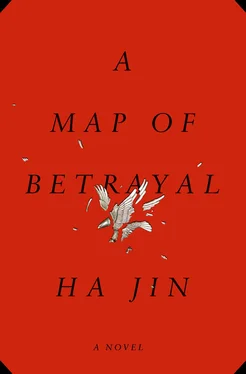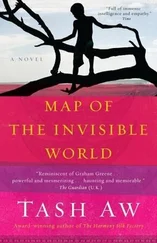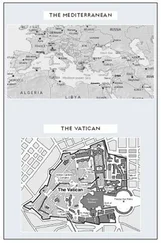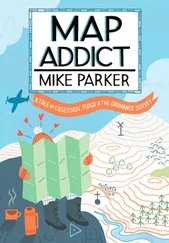Now able to read more reports on the Far East, Gary could see that China was in shambles. The Great Leap Forward had been a catastrophe, and the whole land had been ravaged by a continuous famine. The collectivization in the countryside ruined the agriculture. People wouldn’t work hard anymore because they were no longer paid and could eat for free. During the previous fall a lot of crops were left in the fields, to be eaten by birds and animals or just to rot. Even fruit was not picked in some orchards. When people had consumed all the food before the winter set in, they began to eat the seeds. As a result, many fields couldn’t be sown in the spring. This reduced grain production drastically. Now in both cities and the countryside people were starving and dying. Many secretly left their villages for provinces where the famine was less severe.
Bad news came from all over China, but Gary focused his attention on his home province, Shandong, because he wasn’t sure whether some of the information had been doctored by Taiwan’s intelligence service to influence the White House and the Pentagon. (They were always eager to present a chaotic China to the Americans.) By following the events in a place he knew, he might be more capable of assessing the severity of the situation. Yet he could find little news about his hometown, though he gathered quite a bit of information on some nearby counties. Most country folks there suffered from dropsy, with swelled bellies and their legs puffed out like small barrels. Many women had prolapsed uteruses; even those in their twenties and thirties underwent menopause. An official in charge of birth control admitted that she no longer needed to hand out contraceptives because people were too feeble to conceive. The government tried to help some, issuing six ounces of grain per day for a grown-up and four for a child. But the emergency rations were distributed through echelons of cadres, many of whom would embezzle some for themselves and their families. As a result, country folks received hardly any food. According to one account, in the Huimin area, the prefecture where Gary’s home county was located, tens of thousands had died of hunger and some villages were deserted.
For a whole summer he followed the reports anxiously, still a tad incredulous. How could it be possible for the China that used to be poised to surpass the United Kingdom to collapse into such havoc in the blink of an eye? When dining at Chinese restaurants, he would prick his ears to catch bits of conversation and would talk with others about the situation back home. One day, he saw Suzie Chao, a Mandarin broadcaster at Voice of America, sitting alone in Bamboo Garden, an eatery that had only six tables and offered a lunch special for seventy-five cents. He asked her, “Can I join you?”
“Of course, welcome,” she said pleasantly, her almond-shaped eyes smiling as she waved her slim hand.
He placed his bowl of noodles on the table and sat down opposite her. She looked worried in spite of her bright face. She had a vibrant voice, which had struck Gary as tinged with yearning whenever he heard her on the air, as though she were speaking to somebody she knew well but couldn’t reach. They talked about the famine back in China. She was also anxious to learn more about it. Gary told her about the reduction of population in Shandong but added, “A lot of folks fled their homes or just disappeared, so the figures we got might have been exaggerated. Still, it looks awful.”
She sighed and flipped back her hair to keep her pageboy in shape. “I’ve just heard that my uncle’s family lost their home. The villagers went to tear down his house and used the bricks and timber to build a pig farm.”
“Why would they do that?” Gary asked, thinking it might have been because of her relatives’ connection with her family, who had fled to Taiwan.
“All the houses belong to the commune now. This makes me sick.” She sniveled, on the brink of tears.
“But can they still raise pigs — I mean, do they have something to feed to the pigs?”
“Actually, the pigs are all gone. Either died of disease or were slaughtered for food. People were too desperate to think about their future livelihood. They even ate grass and elm bark. A lot of them starved to death. I heard there was cannibalism in my home county.”
That came as a surprise. Suzie was from Jiangsu, a province known for its fertile paddies and abundant water supply, generally called “a land of fish and rice.” If the famine had wreaked havoc in a place like that, then the whole of China must have become hell.
After that lunch, Gary and Suzie often met at noon or talked on the phone. Initially he was cautious when speaking with her and suspected she might have a complicated background, with her family both in Taiwan and on the mainland. She was poised and somewhat pretty and had a fine figure and a distinct voice. As they got to know each other better, he was surprised to find her single. Unlike most young women, she was not in a hurry to look for a man, though she was already thirty-one. She even claimed she could never make a good wife (“Domesticity is not my strong point,” she confessed), so it would be better for her to remain single. She’d once had a boyfriend in Kao-hsiung, a journalist who’d died in a ferry accident seven years before. That man was an overseas Chinese from Indonesia but had lived in Taiwan most of his life. These days whenever Suzie heard something about the famine on the mainland, she would share it with Gary, who was good at analyzing the information and could see numerous implications. She was impressed and said, “If I had your brain, I’d go to law school or do a PhD in the history of science.”
The more time they spent together, the more intimate their conversations became. One day over dinner Suzie revealed to Gary that a few years ago she had dated an American man, an audio engineer at the Capitol, but they broke up because he looked down on things Chinese. She told Gary, “In the beginning Michael was all right, but he got spoiled. I was too easy on him, I guess. One evening I made rice crust soup and he said under his breath, ‘It’s impossible to eat Chinese shit every day.’ I heard him and shot back, ‘If you sleep with a Chinese woman, you ought to eat Chinese food.’ We had a row, and I just couldn’t stomach it anymore, so we split. Afterward I gave up dating altogether.”
Gary chuckled softly. Her story reminded him of Nellie, who never complained about the food he liked. For that he was grateful. Then Suzie sighed and said, “No matter where I go, I always feel I’m Chinese.”
For some reason her words moved him, though he pressed on, “But you’re a U.S. citizen, are you not?”
“I am. I don’t mean I can’t be a citizen of another country. I mean something inside me cannot be changed, was already shaped and fixed in China. In that sense I’m damned.”
“To be honest, I feel the same,” Gary said. “If you had come to the States before your teens, you might have been more adaptable.”
“Probably.”
They slept together a few weeks later on a late fall evening, in her apartment on Duke Street. After an early dinner she had invited him to tea at her place. Her apartment had one bedroom and a living room, a tidy cozy nest decked with flowered sofa covers and sage-colored window curtains that had big rings at the tops. They didn’t drink tea but shared a jar of rice wine instead, which a friend of Suzie’s had brought back from Taipei. Then one thing led to another. The sex that followed was bone-shaking and tempestuous. Her pillows dropped on the hardwood floor, next to their clothes crumpled in a pile. They panted out coarse words that neither of them had ever heard spoken here. “Ah!” she gasped, her mouth open like that of a fish just out of water. Holding her nipple in his mouth, he kept plunging, his back arched. They’d been raising a tremendous din, unafraid of being heard by others, assuming nobody in the building could understand their love cries. Engulfed in the whirlwind of desire, they’d lost the sense of shame and shed the armor of self-respect. The vulgar expressions gushed out of them with force, as though the words were forgotten incantations, coming back with a vengeance to drive them to copulate for the sake of self-preservation. They fucked like animals.
Читать дальше











